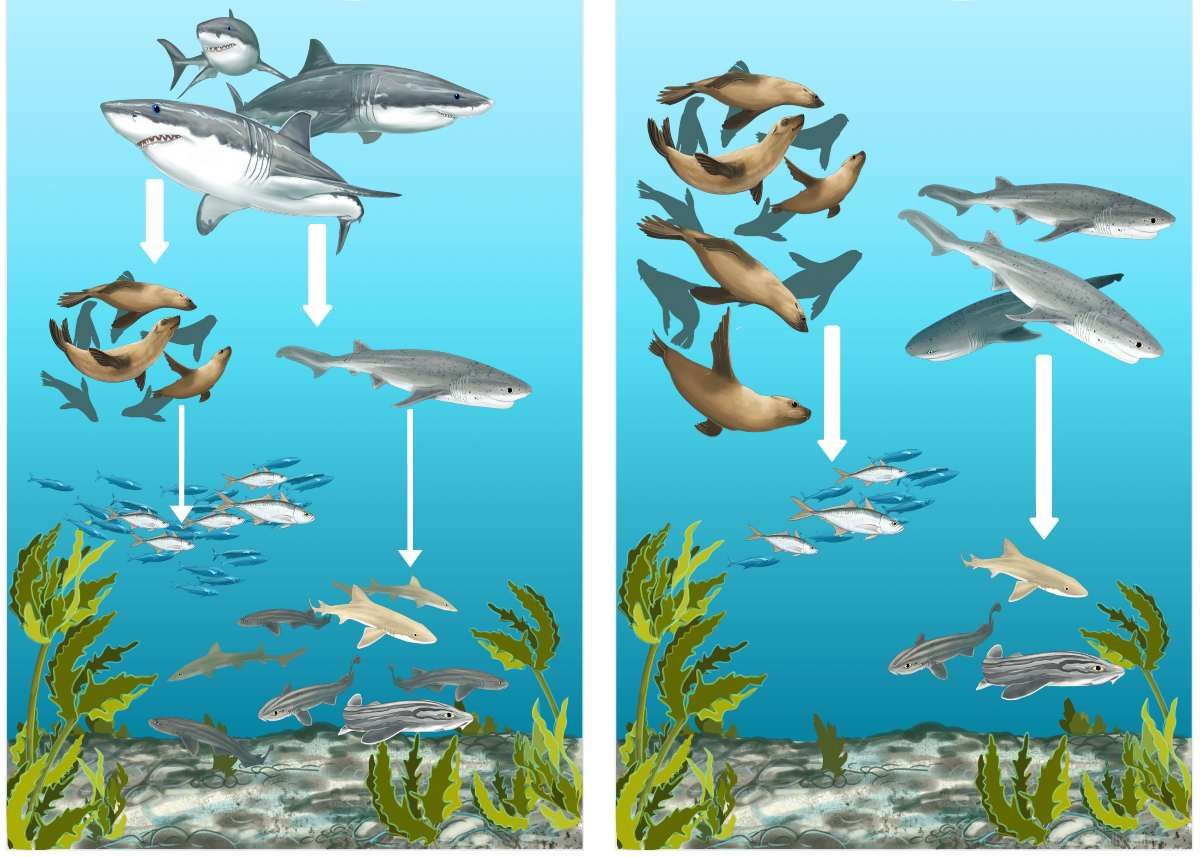False Bay in the Western Cape is a region once renowned for its great white shark activity.
Results from a long-term and groundbreaking study have revealed significant ecological disruptions following the disappearance of these apex predators.
Researchers have documented a cascading effect through the marine food web, highlighting the crucial role great white sharks play in maintaining ecosystem balance.
The study, published in Frontiers in Marine Science (FIMS), analysed over two decades of data. It revealed a sharp decline in white shark populations since 2015, culminating in their virtual absence by 2018.
Great whites no longer reign
This disappearance has triggered a ripple effect, with significant increases in the populations of Cape fur seals and sevengill sharks, which were previously kept in check by the presence of white sharks.
“The loss of this iconic apex predator has led to an increase in sightings of Cape fur seals and sevengill sharks, which in turn has coincided with a decline in the species that they rely on for food,” explained lead researcher Neil Hammerschlag.
To gather their findings, researchers used a combination of:
- Long-term boat-based surveys: tracking white shark sightings.
- Citizen science observations: monitoring Cape fur seal populations.
- Baited Remote Underwater Video Surveys (BRUVS): documenting fish and smaller shark populations.
The data revealed that the increase in seals and sevengill sharks correlated with a decrease in their respective prey: small pelagic fish and smaller benthic sharks.
This provides real-world evidence of the “trophic cascade” effect, where the removal of a top predator disrupts the balance of the entire ecosystem.
The reasons for the white shark decline are still under investigation, with potential factors including overfishing and predation by orcas.
The study underscores the importance of shark conservation, as the loss of apex predators can have far-reaching and potentially irreversible consequences for marine ecosystems.
Have you ever seen a great white shark?
Let us know by leaving a comment below, or send a WhatsApp to 060 011 021 1.
Subscribe to The South African website’s newsletters and follow us on WhatsApp, Facebook, X and Bluesky for the latest news.
